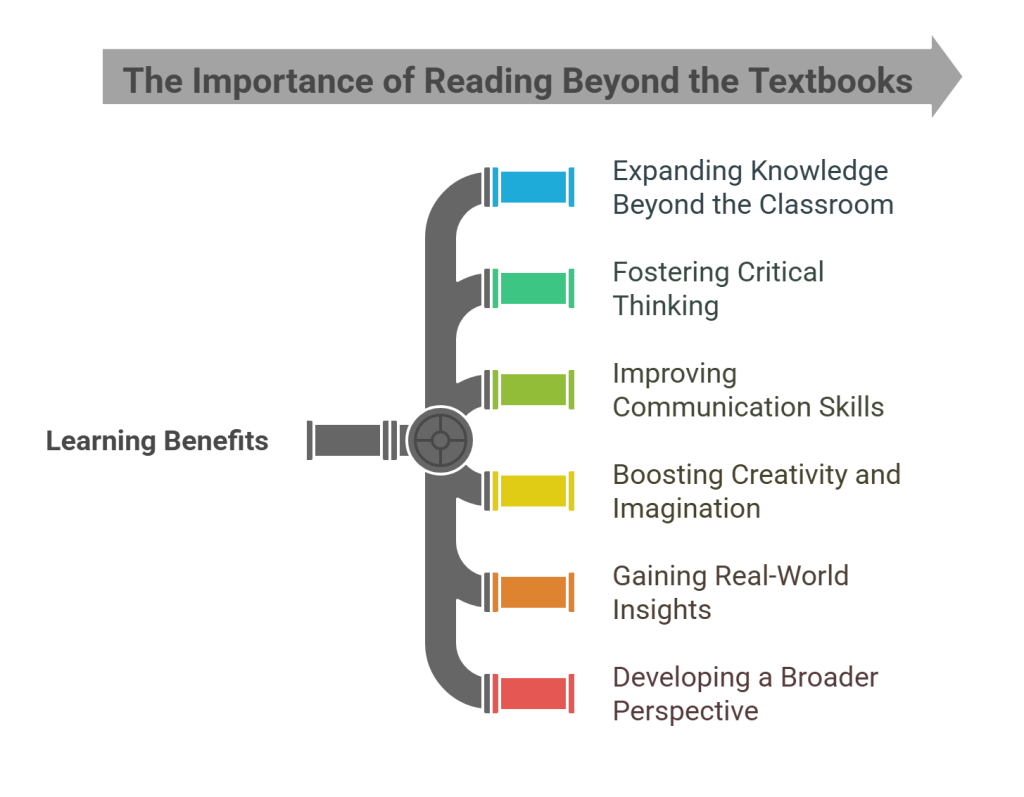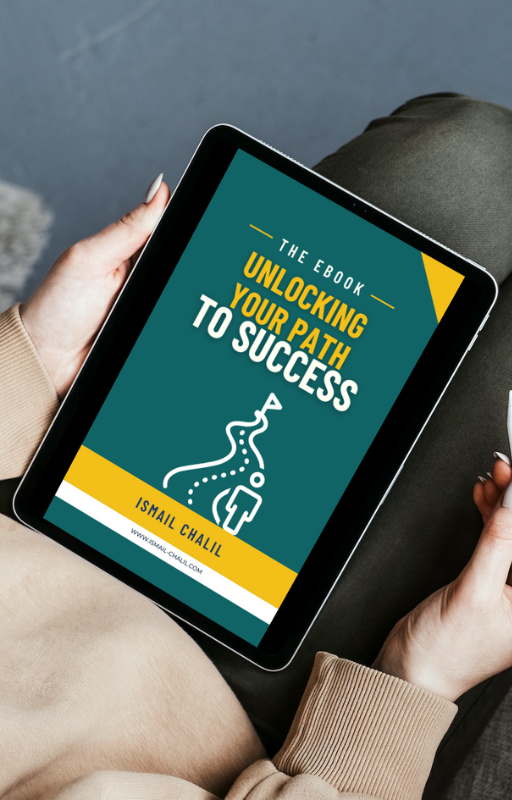In today’s fast-paced world, students often focus solely on their textbooks, driven by the pressure to excel academically. However, reading beyond textbooks is just as crucial for personal growth, broadening perspectives, and fostering creativity. Here’s why stepping outside the confines of your curriculum is vital.

- Expanding Knowledge Beyond the Classroom
Textbooks are tailored to specific syllabi and often provide a limited view of topics. Reading beyond them allows you to:
Dive deeper into subjects of interest.
Learn about emerging trends and developments in your field.
Explore interdisciplinary connections that textbooks might overlook.
For example, a biology student reading about environmental policies or technological advancements in sustainable energy gains a holistic understanding of how science impacts the real world.
- Fostering Critical Thinking
Reading diverse materials like novels, biographies, research papers, or opinion pieces helps you analyse different viewpoints. This sharpen your critical thinking and problem-solving skills, essential in both academic and professional life.
- Improving Communication Skills
Exposure to different writing styles, vocabularies, and narratives enhances your language skills. You learn to articulate your thoughts better, whether through essays, presentations, or conversations.
For instance, reading fiction can improve empathy and storytelling skills, while non-fiction teaches you to convey facts and ideas clearly.
- Boosting Creativity and Imagination
Textbooks often focus on facts and structured learning. Reading beyond them, especially fiction, poetry, or philosophy, stimulates yourimagination and creativity. It helps you think outside the box and come up with innovative ideas.
- Gaining Real-World Insights
Books, articles, and blogs on topics like personal finance, entrepreneurship, mental health, or social issues prepare you for life beyond academics. They provide practical knowledge and life lessons that textbooks rarely cover.
- Developing a Broader Perspective
Reading about different cultures, histories, and philosophies fosters empathy and understanding. It helps you appreciate diversity and develop a global outlook, making you a more well-rounded individual.
- Staying Updated
In a rapidly evolving world, textbooks can become outdated quickly. Reading news articles, journals, or industry reports ensures you stay informed about the latest advancements and trends in your field.
- Reducing Stress and Improving Focus
Reading for pleasure, such as novels or poetry, is a great way to unwind and reduce stress. It also improves focus and concentration, which can indirectly benefit your academic performance.
- Building a Lifelong Learning Habit
When you cultivate the habit of reading beyond textbooks, you embrace the mindset of lifelong learning. This curiosity-driven approach helps you adapt to new challenges and opportunities throughout life.
How to Start Reading Beyond Textbooks
Set Goals: Decide on areas you’d like to explore, such as self-improvement, science fiction, or global politics.
Create a Reading List: Compile a list of books, blogs, or articles that interest you. Apps like Goodreads can help.
Use Online Resources: Platforms like Medium, Coursera, and research databases offer a wealth of knowledge.Join a Book Club: Engage in discussions with peers to gain diverse perspectives.
Dedicate Time: Set aside at least 15–30 minutes daily for reading.
Conclusion
Reading beyond textbooks is a transformative habit that enriches your knowledge, skills, and personality. It prepares you for the complexities of the world while making learning an enjoyable journey. So, pick up a book, dive into a new topic, and watch how it broadens your horizons and shapes your future.

